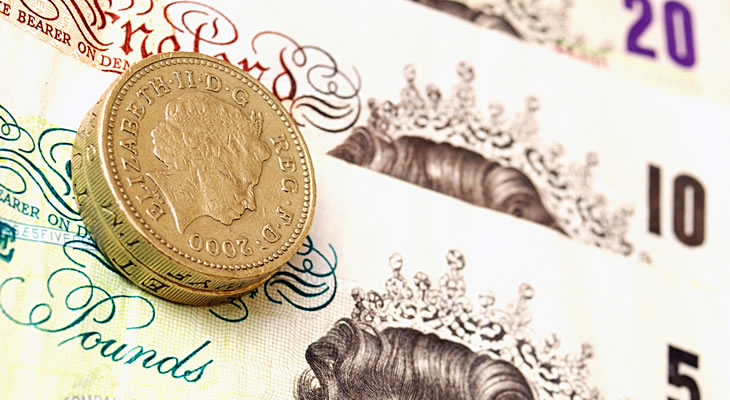The Pound has dropped to 1.1542 against the Euro today, following a worse-than-forecast result for Q1 UK GDP.
Economists have been quick to mention that the quarterly slowdown from 0.7% to 0.2% puts the UK in an uncomfortable position.
Commenting on the slowdown has been PricewaterhouseCoopers Chief Economist John Hawksworth;
‘Today’s GDP data indicates that the economy slowed even more than previously estimated in the first quarter of 2017, as consumer spending power was squeezed by rising prices. Excluding population growth, real GDP per head flatlined in the first quarter’.
This pessimistic summary comes alongside further concerns from Lee Hopley of the EEF manufacturer’s organisation;
‘We expect the consumer weakness to persist as wage growth falls further behind rising prices, but there should be some turnaround on the trade front, driven by a brighter outlook in the rest of the world’.
Both statements highlight the negative impact of rising inflation and slow wage growth on the UK economy, which could become a persistent problem in the future.
While traders usually take rising inflation as a sign that the Bank of England (BoE) will raise interest rates earlier, the link to poor economic growth may become stronger over time.
This could mean that if inflation keeps going up above the rate of wage growth then confidence in the Pound will repeatedly drop.
Inflation could also factor into future Euro movement, although for different reasons. The European Central Bank (ECB) cut interest rates to 0% in March 2016, but more recent talk is of when they could raise rates again.
ECB President Mario Draghi recently spoke on the issue, but disappointed traders with a ‘wait and see’ statement;
‘When we introduced unconventional policy instruments in order to secure a return of inflation, we were aware that those instruments could result in more side-effects than conventional instruments. These side-effects have remained contained. Our current assessment of the side-effects suggest therefore that there is no reason to deviate from the indications we have been consistently providing in the introductory statement to our press conferences’.
To summarise, the ECB needs to see continued inflation growth before it will consider raising interest rates. Since dipping to -0.1% in mid-2016, Eurozone inflation has risen steadily to around 1.9% in recent months. This places it neatly next to the ECB target of 2%, so continued inflation of this level may boost Euro demand on the hopes of higher interest rates.
Recent Interbank GBP EUR Exchange Rates
At the time of writing, the Pound to Euro (GBP EUR) exchange rate was trading at 1.1542 and the Euro to Pound (EUR GBP) exchange rate was trading at 0.8664.


Comments are closed.